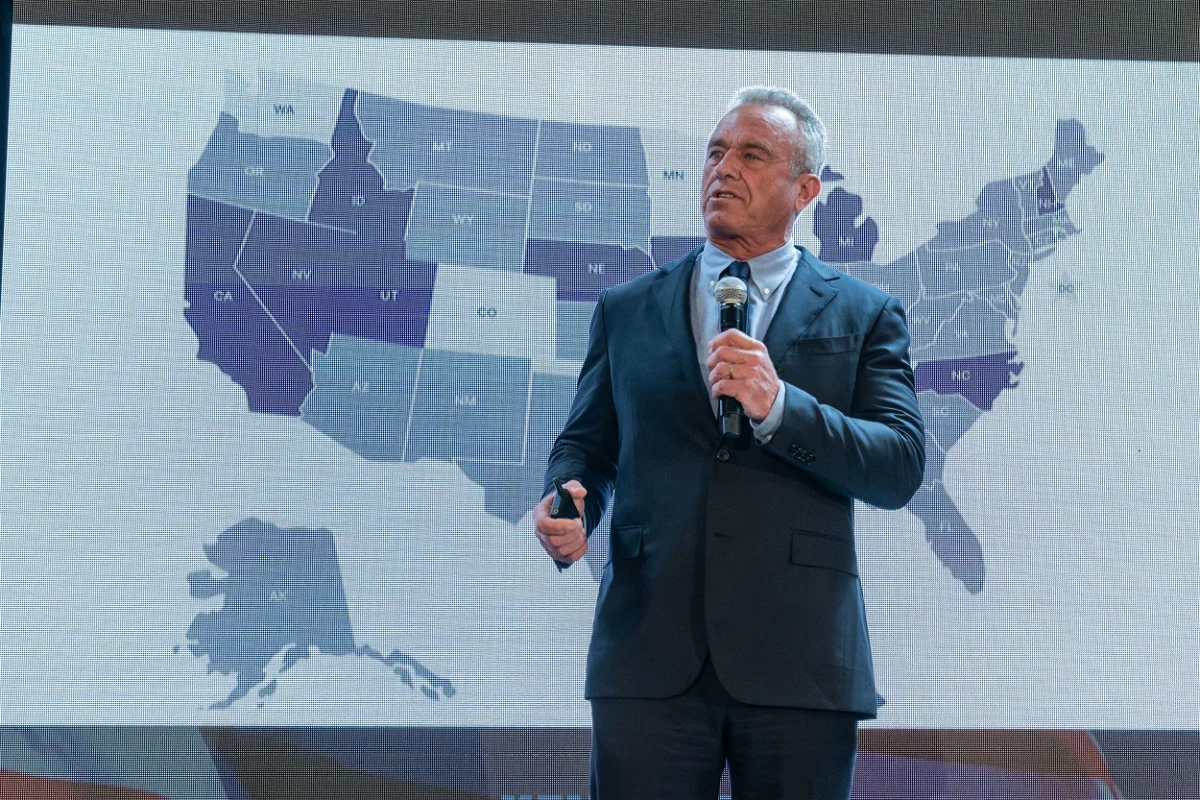When Robert F. Kennedy Jr. took the stage at a campaign rally in Des Moines, Iowa, last month, his team transformed the typically laid-back atmosphere into something closer to a bureaucratic assembly line. Before attendees could enjoy the upbeat rock music, crowded bar, and friendly conversation, they had to go through ID checks, fill out forms, and receive color-coded wristbands. The setup seemed out of place at a political rally, but it was crucial for Kennedy’s campaign, which aimed to qualify him for Iowa’s presidential ballot.
Kennedy is running as an independent candidate, a challenging path that requires securing ballot access in all 50 states and Washington, DC. In Iowa, the campaign needed hundreds of registered voters to sign up for a convention-like process to formally nominate Kennedy to appear on the state’s ballot. Despite the administrative hurdles, the crowd at the Iowa rally was buzzing with excitement.
Dan Twelmeyer, a Des Moines resident, explained his support for Kennedy, saying, “People on both sides are waking up and wanting an option. They don’t want the lesser of two evils. They want hope, and he delivers a message of hope.” After his remarks, Kennedy reaffirmed his commitment to the ambitious goal of achieving full ballot access by July’s end.
This push for ballot access has wider implications for the upcoming presidential election. A recent NPR/PBS/Marist College poll showed Kennedy earning 11% in a hypothetical five-way race with Biden, Trump, Cornel West, and Jill Stein. Biden and Trump both received 42%. While it’s unclear which candidate Kennedy might draw more support from, a close race could mean that a third-party candidate could tip the electoral balance.
Kennedy’s support comes from across the political spectrum. Drew Dietle from Golden Valley, Minnesota, believes Kennedy has a chance to make a significant impact given the general dissatisfaction with Biden and Trump. Others like Stefanie Westendorf from Dayton, Ohio, have similar sentiments, but aren’t convinced Kennedy will make it onto the ballot in their states. “I like Kennedy, but he’s not gonna be on the ballot in Ohio,” Westendorf said, expressing her reluctance to vote for him if he doesn’t make it.
Kennedy’s campaign has succeeded in securing ballot access in five states: Michigan, Utah, Hawaii, Delaware, and California. It’s also gathered enough signatures to qualify in two more battleground states: North Carolina and Nevada, as well as Idaho, Nebraska, and Iowa. To overcome varying and complex requirements, the campaign has used diverse strategies, from collecting signatures at public events to teaming up with minor parties already on state ballots.
Despite these achievements, the road to nationwide ballot access remains steep. The campaign has faced legal battles, as in Utah and Idaho, where lawsuits changed state petition deadlines. There are also logistical hurdles, like in Florida, where candidates need more than 145,000 signatures to qualify. New York presents another significant challenge, with a high volume of signatures needed within a six-week window.
Kennedy’s campaign has around $6 million in cash, with significant contributions from his vice-presidential nominee, Nicole Shanahan, providing additional financial support. This backing is crucial to tackle the challenges ahead and ensure Kennedy can compete in every state.
While ballot access is an important milestone, it doesn’t guarantee victory. Some voters, like Debra Chilcott from Patchogue, New York, are willing to back Kennedy only if he has a real chance of winning. “I want to put my money where the best bet is,” she said, indicating that she would vote for Trump if Kennedy isn’t on the ballot.
Ultimately, Kennedy’s campaign faces an uphill battle. Yet for some voters, the idea of having a third-party option is important enough to offer their support, even if it doesn’t guarantee success. Benjamin Novak, a Maryland voter, summed it up: “I’m not a huge Kennedy fan, but I think it’s important to have options for third-party candidates even if they’re not your favorite.” For others, like Doniella Pliss from Springfield, New Jersey, voting for Kennedy is about aligning with her values. “Do I see a path to victory? In an ideal world, maybe. In practical terms, maybe not,” she said. But for those who believe in the democratic process, offering support to a third-party candidate is more about principle than the outcome.















































